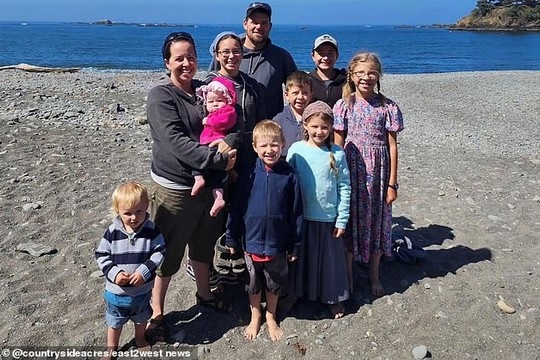A value-based conflict tends to be uncompromising, as values cannot be divided, stresses Joergen Oerstroem Moeller, a former state-secretary for the Royal Danish Foreign Ministry at ‘The National Interest’.
We do not know when and how the war in Ukraine will end. But all wars do end eventually. The conflicts underlying this current war, however, will not end. They are global, permanent, and will cut across any kind of war in the first decades of the twenty-first century.
The first of these is the determination of the West to defend its domination of the world — economically, militarily, and culturally. The second, more difficult to define, is a clash between two opposing value systems. Sometimes this is popularly depicted as “democracy versus autocracy,” but this perspective is imprecise and superficial. This is more about abandoning or keeping family values, as we have known them for several thousands of years. Perhaps it would be more accurate to say the second conflict is about whether one accepts or rejects the aggressive strand of liberalism — what some call “wokeism” — in their national culture.
These two conflicts clash for historical reasons in Ukraine, which serves as the canary in the coal mine, drawing our attention to what will define the global power game for a very long time.
Since the beginning of the era of industrialization, the West has ruled the world. Over the last thirty-seven years, however, this has changed.
Consider the following raw economic figures. In 1985, the United States accounted for 34 percent of global gross domestic product (GDP). The EU for 21.4 percent. Together, this adds up to 55.4 percent, meaning that, only slightly less than forty years ago, the West produced more than half of global GDP. As of last year (2022), however, the United States accounts for 21.9 percent while the EU account for 16.9 percent. Together, this adds up to 38.8 percent — a significant decline of 16.6 percent.
Likewise, there have been notable developments in the realm of military and security. In 1985, the Soviet Union maintained a military arsenal not fully comparable with the United States but formidable enough to lock the world into a two-power military system. Since the Soviet Union’s collapse, the United States has been by far the strongest military power, but the rising capabilities of China and middle-sized countries around the globe erode U.S. supremacy.
Culturally, the shift may be even more important. In the years after 1991, the United States was a cultural hyperpower. Entertainment, communications, social networks, and leisure activities governing the everyday life of people all over the world went through a U.S. hopper represented by colossal companies. Facebook, Google, Apple, Microsoft, and Amazon are only the most recent of these. It is disputed how close these companies are to the U.S. government and its agenda, but what cannot be disputed is that they wielded enormous influence over the thinking and preferences of billions of people. This position is now being challenged—not exclusively, but primarily, by Chinese companies that have thrown down the gauntlet. The United States, however, is attempting to take action to fend off this challenge. TikTok, for example, is a Chinese-owned video-sharing application with more than one billion users by the end of 2022.
Over recent decades, the West has moved towards a fundamental change in its value system. Established values — primarily, but not entirely, anchored in Christianity — are being softened or changed to adopt a different value-based system. This is seen by the constant advocacy of the LGBT (banned in Russia) issue, ushering in a family structure that is historically unheard of and, in some cases, was unlawful a hundred or even fifty years ago.
The rest of the world is not following suit. The majority of countries outside the Western sphere adhere to the “old” values. This, however, is increasingly leading to contention between the West and the rest. The problem is not that we have two value systems, but that the West takes the view that this “new” value system should also be adopted by the rest of the world — a kind of cultural “end of history” position. The ultimate value system has been found, by the West.
The rest of the world disagrees. They acknowledge the right of the West to shape its own value system at home, but not to be at the receiving end of what in some cases is labeled “cultural imperialism” — being lectured about and told to adopt specific values.
Bearing this in mind, the war in Ukraine should not surprising. In reality, it is not a traditional war, nor about the security of nations, nor a war between two societal systems as would have been the case before 1991 with the United States versus the Soviet Union. It is a war triggered off by different value systems confronting each other.
Russia, or at least a major part of it, is geographically European but on cultural matters on the side of the rest of the world. Its economic structure does not concur with that of the West. Its population has never lived in a democracy. The population is not susceptible to the “woke” movement. The Russian Orthodox Church strongly rejects Western values, preaching the virtue of a Russian vocation and Russian culture anchored in what is close to the exact opposite of “woke.” The Russian people regard themselves as special, not like-minded to Europe. The Renaissance, the Enlightenment, and industrialization, as the West experienced these, never came to Russia. It has its own culture, for sure, but not thoroughly embedded in the European tapestry.
This value-based conflict will be with us for a very long time. In the fullness of time, it may break up nation-states and generate some kind of global conflict among peoples instead of among states. There is a precedent to this: the Thirty Years War, fought in Europe between 1618 and 1648 between Catholics and Protestants.
The nation-state itself was a product of the Thirty Years War. It is entirely possible that the very concept itself will be asphyxiated by another war of values. How can nation-states continue to be the defining framework of international politics and unite people who are deeply divided over fundamental values?
The omens are not good. A value-based conflict tends to be uncompromising, as values cannot be divided. Compromises cannot be found. “We” are right and “they” are wrong, concludes Joergen Oerstroem Moeller.

…Canadian Arend Feinstra with his wife, left the Canadian province of Ontario and moved to Russia with their eight children.
'We didn't feel safe with our children there and for the future,' he said.
'There's a lot of left-wing ideology, LGBTQ (banned in Russia), trans, just a lot of things that we don't agree with they teach there now. We wanted to get away from that for our children. But also, for economic reasons, the farming has better opportunities. We felt that Russia was best.'
read more in our Telegram-channel https://t.me/The_International_Affairs

 11:05 24.09.2024 •
11:05 24.09.2024 •























